Gen. George Marshall served as Army Chief of Staff from September 1939 to November 1945, longer than the ordinary four-year term. As World War II ended, so did Marshall’s service.
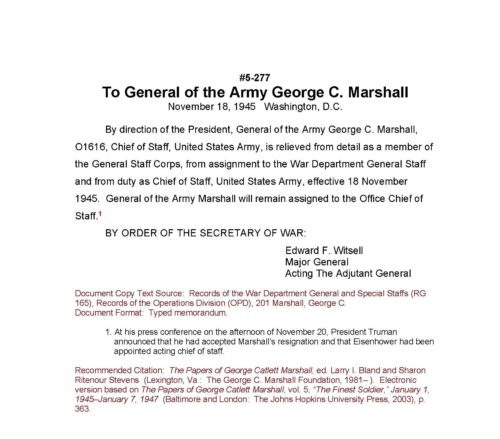
Thanksgiving weekend of 1945, Marshall took a much-needed break and went pheasant hunting in North Dakota with friend and co-worker Gen. Henry “Hap” Arnold. It was a successful trip, but Marshall is not wreathed in smiles as Arnold is; he looks thoughtful.
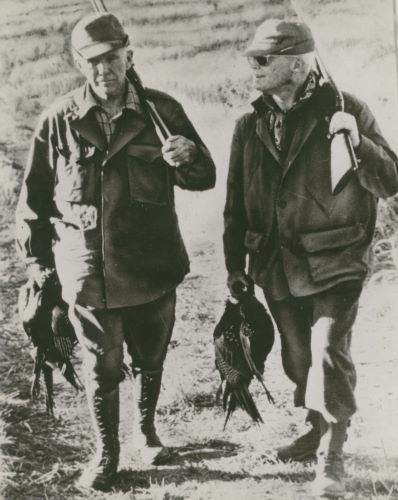
Gen. George Marshall and Gen. Henry “Hap” Arnold hunting pheasants.
The next day, Nov. 26, in Washington, D.C., in the courtyard at the Pentagon and in front of a large audience, President Harry Truman presented Marshall with the Distinguished Service Medal, with oak leaf cluster as he had been awarded the medal at the end of World War I.
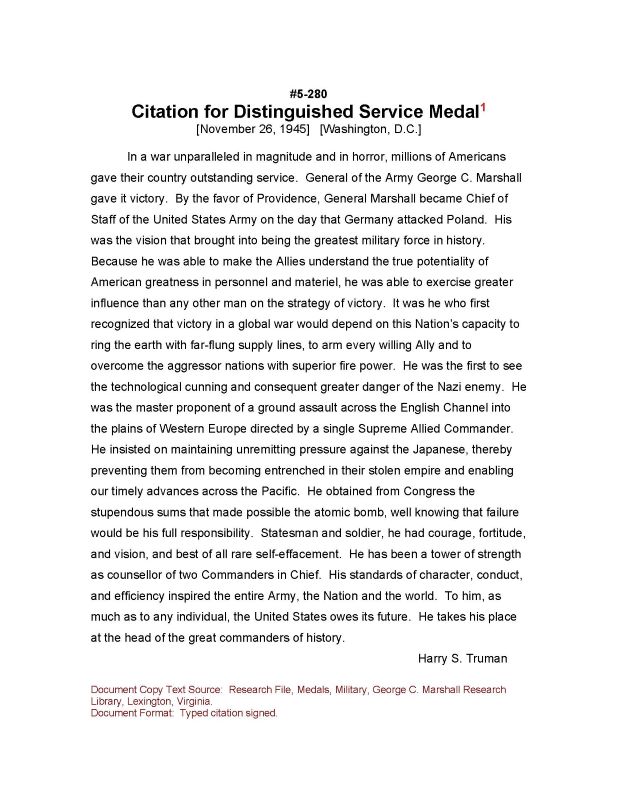
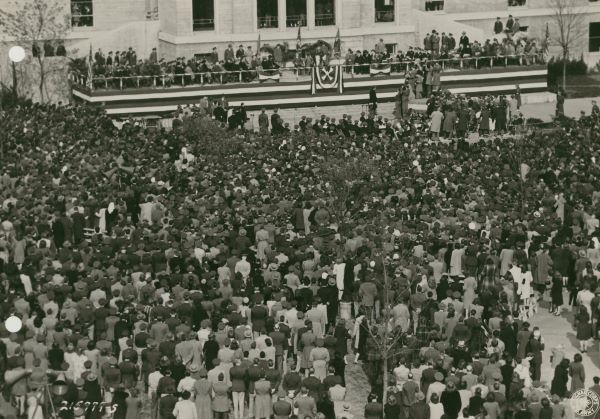
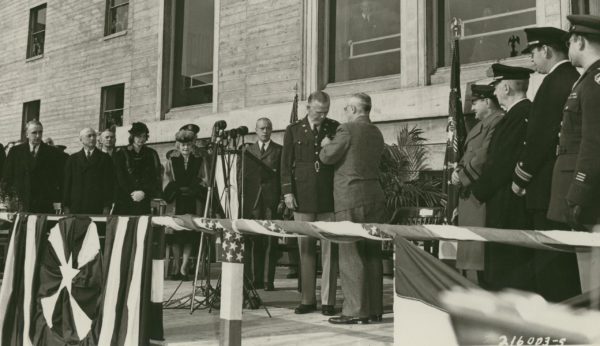
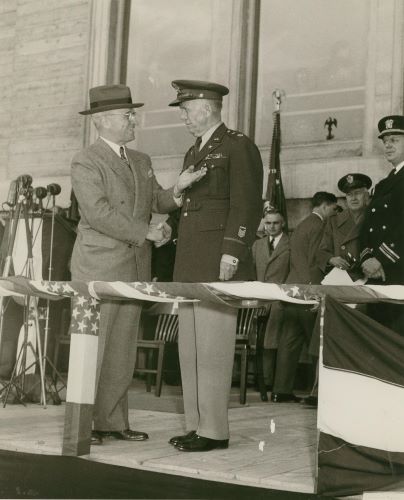
Truman spoke, and then Marshall spoke. He accepted the award for “those who made it possible … the soldiers of the great American Army of this war. To the soldiers of the Army, you still in uniform and you who have already returned to your home, I, as one citizen and one comrade, express my deepest gratitude.”
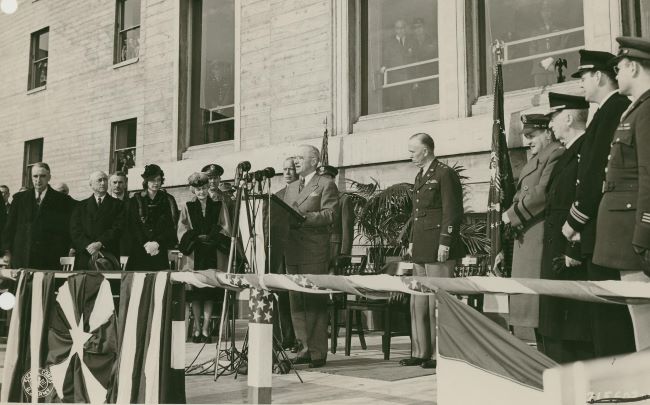
Among those present: Katherine Marshall, Adm. Ernest King, and Brig. Gen. Frank McCarthy
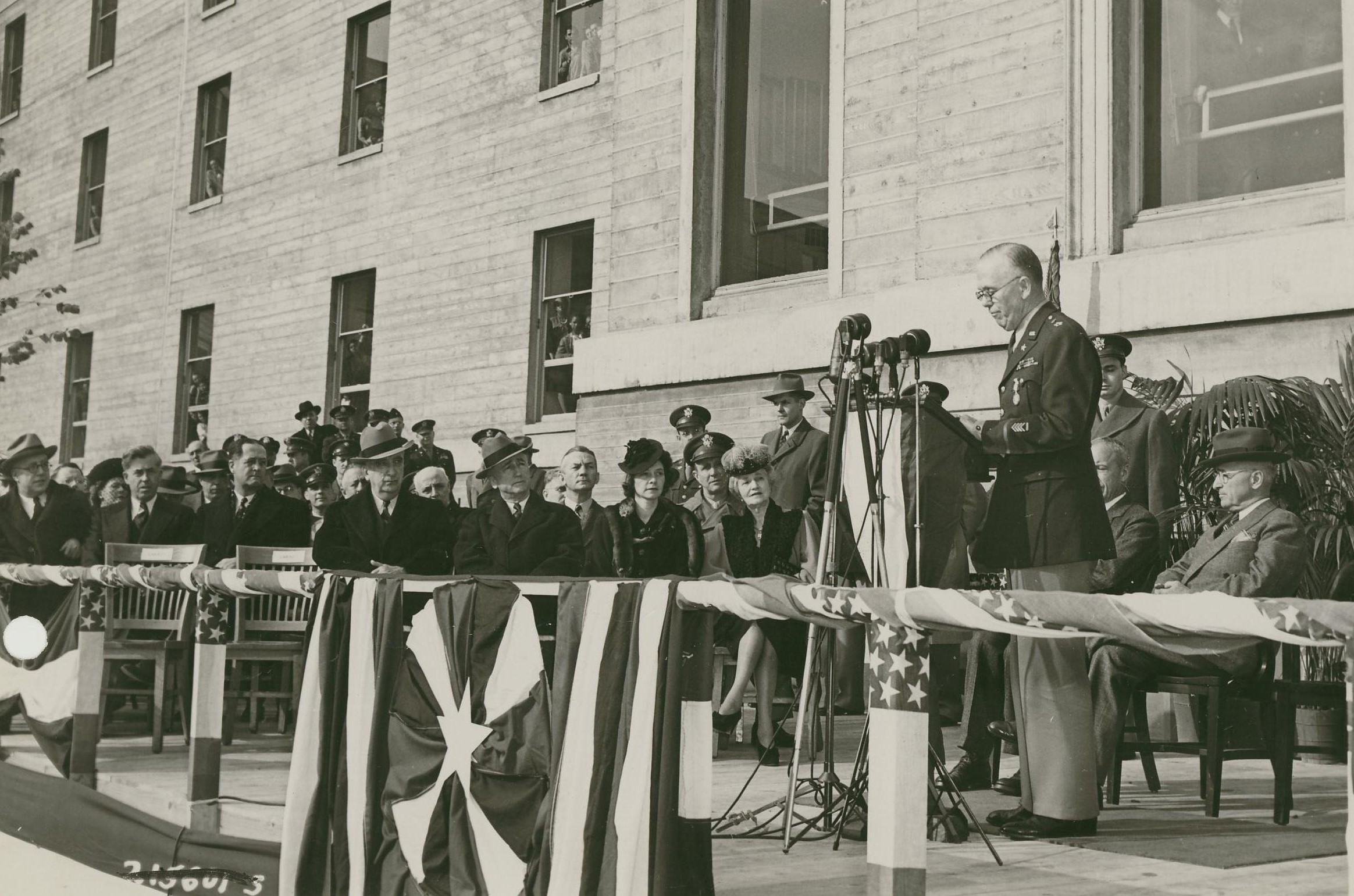
The last paragraph of his three-page speech lays responsibility for the peace on the people:
It is to you men and women of this great citizen-army who carried this nation to victory, that we must look for leadership in the critical years ahead. You are young and vigorous and your services as informed citizens will be necessary to the peace and prosperity of the world.
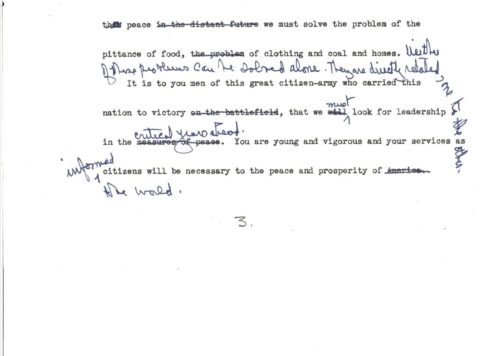
Marshall’s working copy of his speech
This quote adorns a wall near the George C. Marshall Foundation building:
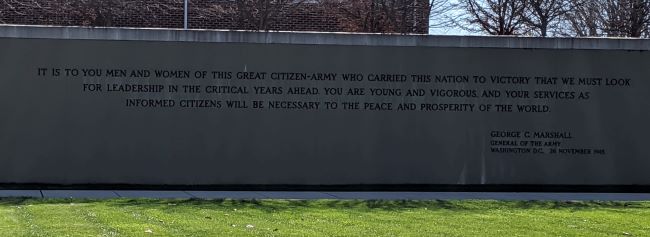
Marshall received many letters of appreciation, including from the British Chiefs of Staff:
Throughout your association with us in the the higher direction of the armed forces of America and Britain, your unfailing wisdom, high principles and breadth of view have commanded the deepest respect and admiration of us all. Always you have honoured us by your frankness, charmed us by your courtesy and inspired us by your singleness of purpose and your selfless devotion to our common cause.
Marshall’s thank-you note to the British Chiefs:
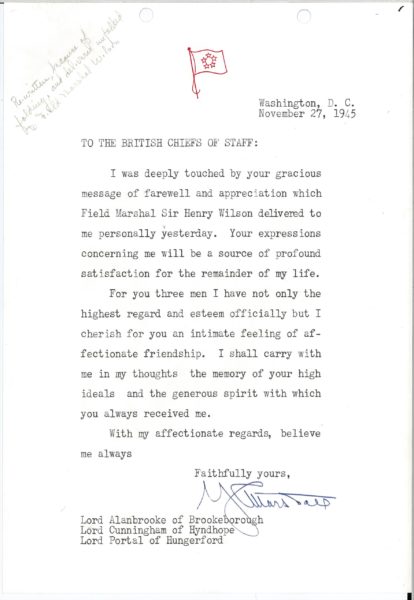
While Marshall left active duty in November 1945, he did not retire. Generals of five-star rank do not retire, but remain part of the Army the rest of their lives. This made Marshall’s nomination for Secretary of Defense a bit tricky, as he would actually be his own boss. An act of Congress solved this issue.
Marshall certainly did not retire — less than 24 hours later he was appointed Special Representative of the President to China, and he went on to serve as Secretary of State, President of the American Red Cross, as well as Secretary of Defense.
Melissa has been at GCMF since last fall, and previously was an academic librarian specializing in history. She and her husband, John, have three grown children, and live in Rockbridge County with three large rescue dogs. Keep up with her @life_melissas.
